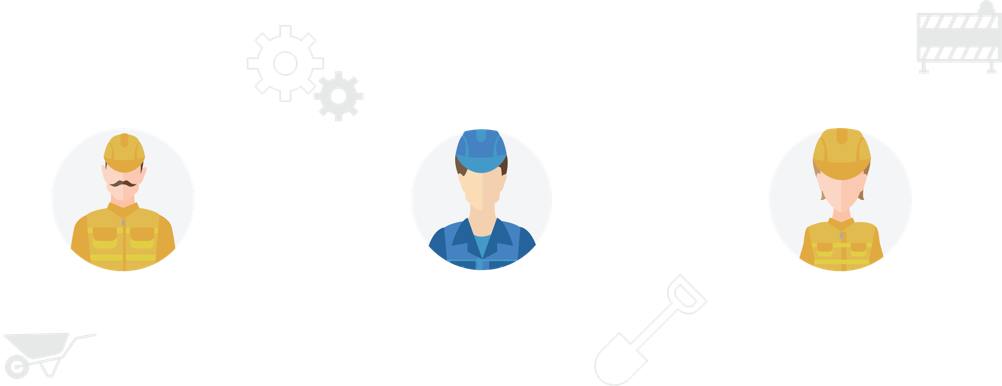
Water Well Drillers operate various types of drilling equipment for the purpose of drilling and servicing water wells. They are required to perform service and maintenance of drilling equipment, select and change drilling tools, complete bore holes into a productive well, and disinfect and service completed wells and pumping equipment.
Job Related Skills, Interests and Values
- Completing well records and reports clearly, concisely, and on schedule
- Knowing and applying correct safety procedures in the construction and operation of water wells
- Gaining knowledge about geological formations to locate clean/safe water sources for drinking
- Servicing and maintaining drilling equipment; safely using drilling and boring tools to drill wells
- Communicating effectively with co-workers and other contractors and supervisors
- Providing customer service through locating and estimating costs of new well construction or existing well restoration
What Preparation and Training Do You Need?
- Secondary school diploma with math, science, and English credits; those 16 years and older who have completed grade 10 can apply to OYAP to gain apprenticeship work hours
- While not mandatory, completion of a 5,000-hour apprenticeship, including on-the-job and in-school training, is recommended
What's Your Future as a Water Well Driller (605B)?
- Work primarily outdoors, often in remote locations
- Hours can be unpredictable; required to stay on site until job is complete
- Employers include residential building developers, building construction firms, and construction site maintenance firms
Wage Rate
Apprentice wage increases with skill and experience. Fully qualified workers earn an average of $27.00-$35.00 per hour.
Self-Rating
Water Well Driller (605B)
| Ask Yourself: | Yes | No |
|---|---|---|
| Are you comfortable working outdoors and indoors? | ||
| Do you enjoy working with tools, equipment and machinery? | ||
| Can you travel for work? | ||
| Are you able to follow Health & Safety guidelines? | ||
| Do you have an eye for detail? Are you good with calculations? | ||
| Would you enjoy interacting with site supervisors, customers, suppliers, co-workers and other tradespeople to get the job done? | ||
| Are you able to lift 50lbs? |
If you checked YES to the majority of these questions, a career as a Water Well Driller (605B) may be for you!
You might want to look at these similar trades as well;
- Oil & Gas Well Drillers
- Heavy Equipment Operator
- Carpenter
Heavy Equipment Operators operate heavy equipment used in the construction and maintenance of infrastructure and in surface mining and quarrying activities, including backhoes, loaders, graders, dozers, and excavators. Heavy equipment operator specializations include Tractor Loader Backhoe Operator (636A), Excavator Operator (636B), and Dozer Operator (636C).
Construction Boilermakers build, repair, test, and maintain all types of boilers, tanks, and pressure vessels. They also perform all types of structural and plate work on dust, air, gas, steam, oil, water, and other liquid-tight pressure vessels. Work may occasionally be done on scaffolds to repair and maintain existing boilers.
General Carpenters work mainly with wood, wood substitutes, and materials like drywall, plaster, steel, copper, and tiles. They may construct, install, maintain, or repair structures and be responsible for framing and forming or finishing cabinets, doors, stairs, and other major wooden structures.
Plumbers install, repair, and maintain pipes, fixtures, and other plumbing equipment used for water distribution, drainage, and waste disposal in new or existing residential, commercial, and industrial buildings.